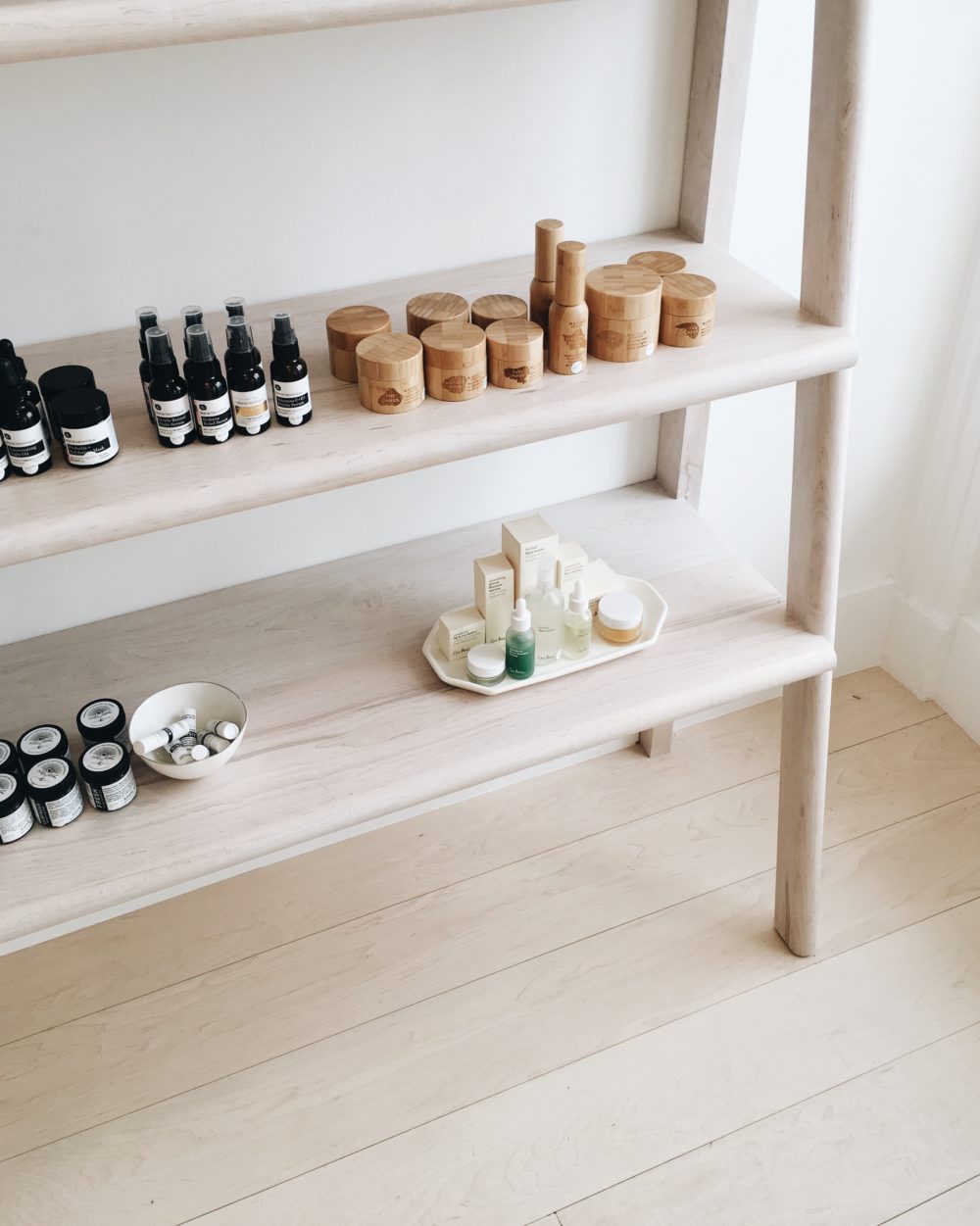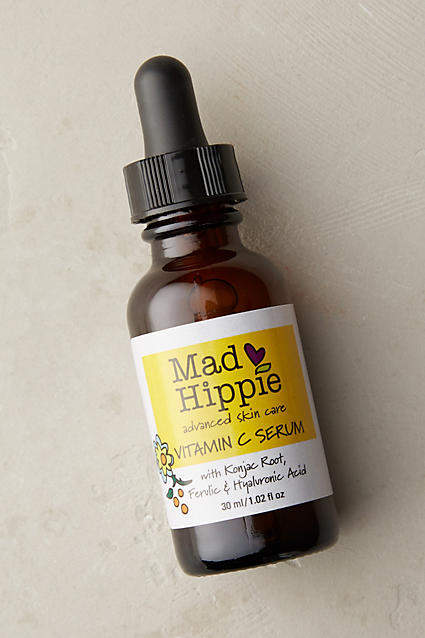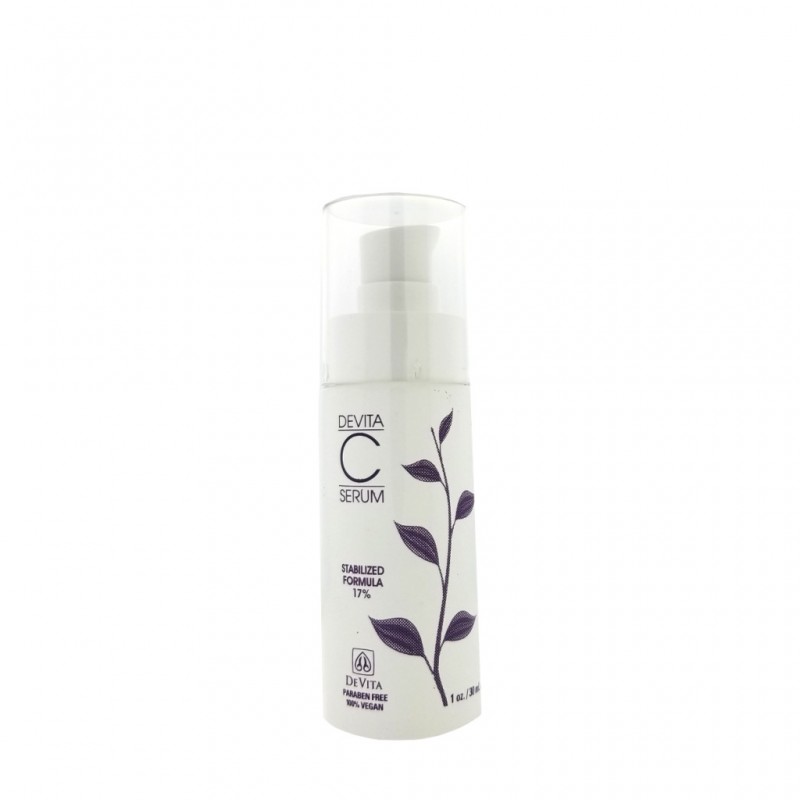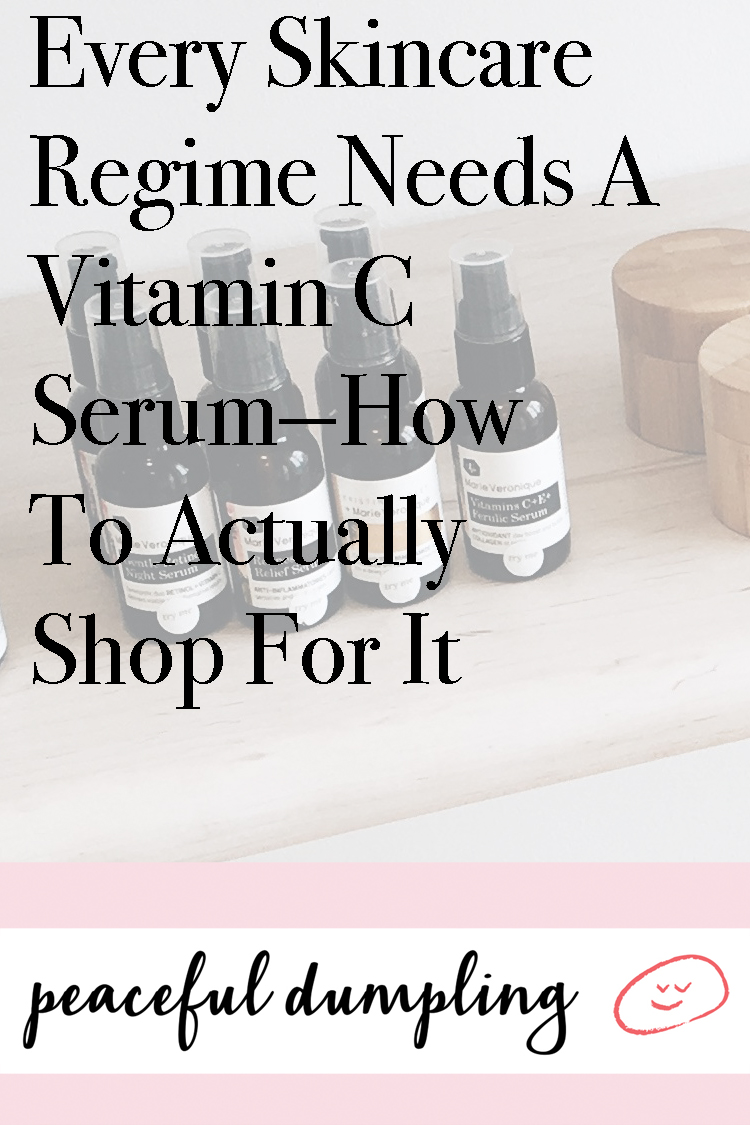Do you use a vitamin C product, Dumplings? Vitamin C is arguably one of the most common ingredients in skin care products and for good reason. Vitamin C creams and serums are associated with a host of benefits: anti-aging, lightening hyperpigmentation and skin discoloration, combatting photoaging, reducing inflammation, assisting skin’s healing process, and supporting collagen growth.
The recent buzz around all things collagen has renewed my interest in topical vitamin C, especially since I’m all about supporting the natural collagen building process rather than directly applying collagen to my face (or taking it internally)—the efficacy of which is still widely debated. Finding the perfect vitamin C serum is easier said than done, however.
Although the aforementioned benefits are supported by peer-reviewed research in the dermatology field, vitamin C remains one of the most confusing ingredients to shop for thanks to a variety of factors. For one, vitamin C is notoriously difficult to stabilize, meaning that it can easily be rendered ineffective if improperly formulated. Furthermore, vitamin C-containing products can be skin irritants, leading many to wonder if they’re doing more harm than good. Finally, there are different forms of vitamin C, each with its own balance of effectiveness and stability.
But worry not. It is possible to move past the confusion surrounding vitamin C and find a high-quality vitamin C product.
Topical Vitamin C 101

While there is not necessarily a single best form of vitamin C, the following forms are the most stable and effective: ascorbic acid, L-ascorbic acid, ascorbic palmitate, sodium ascorbyl phosphate, tetrahexyldecyl ascorbate, and magnesium ascorbic phosphate.
Whatever form of vitamin C you choose, keep in mind that, like all antioxidants, it’s vulnerable to light and air. Seek a product packaged in an opaque pump dispenser. In most cases, clear bottles and wide-mouthed jars are not vitamin-C friendly although there may be some exceptions depending on formulation.
Different Forms of Topical Vitamin C to Know

Ascorbic acid (often referred to as L-ascorbic acid) is one of the most researched forms of vitamins C—and it’s incredibly potent. Just make sure to avoid jar/clear packaging. You’ll know if this ingredient has been oxidized (and rendered useless) if you notice any discoloration in the product.
Ascorbic palmitate is a fairly stable and non-acidic form of vitamin C that helps reduce free radicals from UVB rays. Thanks to its palmitate quality, it’s also moisturizing.
Sodium ascorbyl phosphate is a water-soluble form of vitamin C that’s also quite stable. Budding research suggests it may have antibacterial action against acne—and may also help reduce the inflammation associated with acne.
Tetrahexyldecyl ascorbate is fat soluble, meaning it can penetrate the natural oil on our skin, leading some to believe it has a greater affinity for skin than other forms of vitamin C. This form of vitamin C is associated with boosted collagen production and reduced wrinkle depth.
Magnesium ascorbic phosphate—a stable and effective form of vitamin C associated with improved hydration and elastin.
Best Topical Vitamin C Products

Using highly stable sodium ascorbyl phosphate, this award-winning serum had garnered praise for its ability to improve the overall appearance of skin, especially when it comes to reducing the appearance of acne scars. The serum also includes Vitamin E and Ferulic Acid to enhance its photo-protective qualities.
Ursa Major Brighten Up Vitamin C Serum

Formulated with stabilized, water-soluble vitamin C, this natural serum helps tone, firm, and brighten skin. The combination of rose hip, aloe, edelweiss, aspen bark, and rose gently exfoliate skin, provide antioxidant support, and soothe inflammation.
Paula’s Choice RESIST Super C15 Super Boost 15% Vitamin C

This highly concentrated blend of vitamin C, vitamin E, and ferulic acid can be used alone or combined with your favorite moisturizer to help reduce the appearance of fine lines and hyperpigmentation.

This serum boasts 17% stabilized vitamin C and is designed to help prevent photo-aging, improve skin tone and elasticity, minimize the appearance of hyperpigmentation and fine lines, and boost collagen synthesis. Devita C serum also contains aloe, Japanese green tea, castor seed oil, CoQ10, and orange peel oil to deliver an extra boost of antioxidants and soothing ingredients.

This all-natural, lightweight serum helps brighten skin, stimulate cell renewal, and diminish hyperpigmentation—all with the help of organic extracts of evening primrose, witch hazel, and flax seed.
Whichever vitamin C product you opt for, always wear SPF 30 during the day.

What’s your favorite serum?
Related: Wake Up With The Best Skin Of Your Life—10 Vegan Serums For Every Need
Feel A Zit Forming? Do This Protocol ASAP, Wake Up With Miraculously Clear Skin
Why Hyaluronic Acid Is a Secret Weapon for All Skin Types
Get more like this–sign up for our newsletter for exclusive inspirational content!
__
Photo: Respective brands, Anna Sullivan on Unsplash, ika dam on Unsplash




